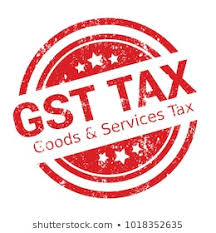Six firms are listed on the GSTN website which will offer software free of cost to the targeted eight million small businesses or nearly seventh of India’s estimated 55 million SMB base.

A government bid to democratise access to accounting software free for small companies to comply with the country’s indirect taxation regime will give a legup to Indian software product companies, helping them scale their userbase and strengthen their business
The Goods and Services Tax Network last week allowed small businesses, with a turnover of Rs 1.5 crore or lower, to download a software that would help create invoices and account statements, manage inventory and prepare GST returns.
Six firms are listed on the GSTN website which will offer software free of cost to the targeted eight million small businesses or nearly seventh of India’s estimated 55 million smb base.
The move by the government is aimed towards making digitisation easier for small companies, said a senior executive of GSTN.
“The GST Council wanted to help the small businesses digitise and thereby have hassle free compliance. These should also help them in streamlining day to day operations,” said the official, who did not want to be named.
Zoho Books, part of Zoho Corporation, among the selected vendors said that this would encourage higher adoption of the software and increase engagement with its entire cloud suite of software products.
“We definitely want to help SMEs maintain proper books so that getting access to credit becomes easier and we also want to expose them to the latest technologies,” said Sivaramakrishnan Iswaran, Director, Product Management at Zoho Corporation.
“Once they start using Zoho Books and when they grow beyond the particular size, we are assuming they will stick to us and that will increase the subscriber base.”
Iswaran of Zoho said that the Rs 1.5 crore turnover figure is the “magic number” beyond which companies may be in a position to afford a decent accounting software even if not a big accounting team.
India is witnessing a surge of software product firms that offer their software as a service. They also adopt a freemium model of business that encourages customers to use their basic product free and pay a monthly rental fee to use additional features.
Other homegrown companies also feel that the move would increase their visbility and help them target a large base of potential users according to other companies.
“For us reaching out to every nook and corner and to 3 million taxpayers who have turnover of Rs 1.5 crore and below would not have been easy. So we thought it could help us get more visibility,” said Nitin Patel, Director, Relyon Softech, which offers Saral Accounts, a GST software.
He said the agreement to offer these accounting and billing software services is for two years
“In cases where some companies use our solution beyond the listed free applications would be paid service. (Also), the assumption is some of these companies may continue to use our solutions after 2 years.”
An industry analyst said these companies may treat this as a marketing cost to onboard more small businesses and eventually they may buy services which are not free.
Tally Solutions, a large Indian provider of enterprise resource planning software which also offers a GST compliance software tool only offers a paid version.The company believes that free and paid software vendors will be able to co-exist.
“We are genuinely happy with the initiative taken by the government since it will be a major driver for automation in SMEs” said Tejas Goenka, Managing Director of Tally Solutions.
He added, “We do not have a free version of Tally and not intending to offer it any time soon. Having said that this situation of co-existence of free and paid software has been there for decades and finally businesses will choose whatever is best for them.”
Analysts say that technology investments will help in improving compliance across the industrial ecosystem.
“It is incumbent upon the government to provide some support, especially for the smaller taxpayers to contain the cost of compliance,” Uday Pimprikar, Partner & National Leader, Indirect Tax, EY India.
Article Credit :- Tech
